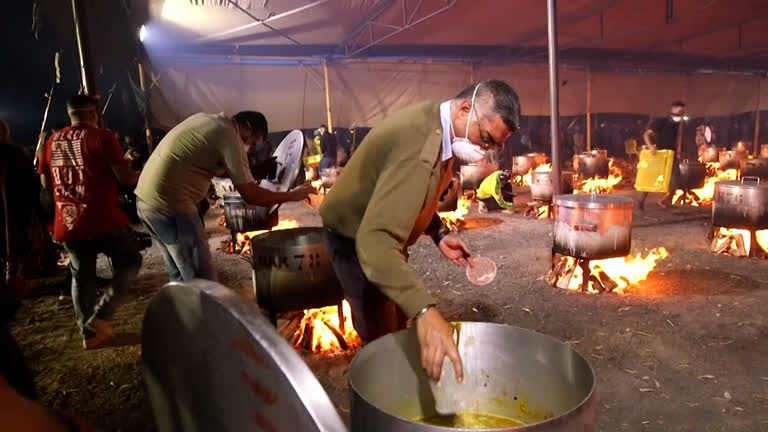
Steaming Pots of Food for 90,000 Marks End of Ramadan in Cape Town
Volunteers in Cape Town have today continued a tradition, started nearly 40 years ago, by providing a plate of food to less fortunate families in celebration of the end of the Muslim fasting month of Ramadan. This time though there is an added urgency to their gesture of humanity, as spiralling inflation – driven by […]

Volunteers in Cape Town have today continued a tradition, started nearly 40 years ago, by providing a plate of food to less fortunate families in celebration of the end of the Muslim fasting month of Ramadan.
This time though there is an added urgency to their gesture of humanity, as spiralling inflation – driven by the Russian invasion of Ukraine – has pushed up staple food prices, making it tougher for cash-strapped consumers in SA.
Normally prepared after late evening prayers on Monday, the steaming pots of aromatic akhni – a rice, potato and meat dish – are then distributed to feed more than 90,000 people across all faiths in Cape Town, the spiritual home of Islam in South Africa.

“The purpose of Nakhlistan is to try to alleviate suffering and to help the poor and to feed the hungry,” says Sheikh Sadullah Khan, one of the co-founders of Nakhlistan, a not-for-profit outfit which started in 1984.
“The person who’s fasting, who can afford it, must ensure (they) also provide something for the people who are in need throughout Ramadan, but more in particularly for Eid,” he added.
Millions of Muslims worldwide celebrated the religious holiday, Eid al-Fitr, which marks the end of a month-long dawn to sunset fasting period of Ramadan.


On an empty rugby field stood rows of huge 130 litre pots, constantly stirred with a wooden oar-like plank while tonnes of food cooked for hours, before being readied for delivery to some of Cape Town’s poorest communities and even prisons.
“I actually feel grateful because you know there’s a lot of people that don’t have (food) and this side (where we live) poverty is real we (are) actually grateful,” Tamia Galant, one of the recipients, said.

According to South Africa’s Household Affordability Index, the cost of the average household food basket increased by 8.2%, or R344 ($21.34) year-on-year in April, to reach R4,543 compared to last year’s prices.
The high cost of core staples has meant a variety of nutritious food being removed from family meals, impacting household health and stunting child development, the report released last month added.
ALSO READ: What is Eid al-Fitr and how do Muslims celebrate it?
Source: Reuters
